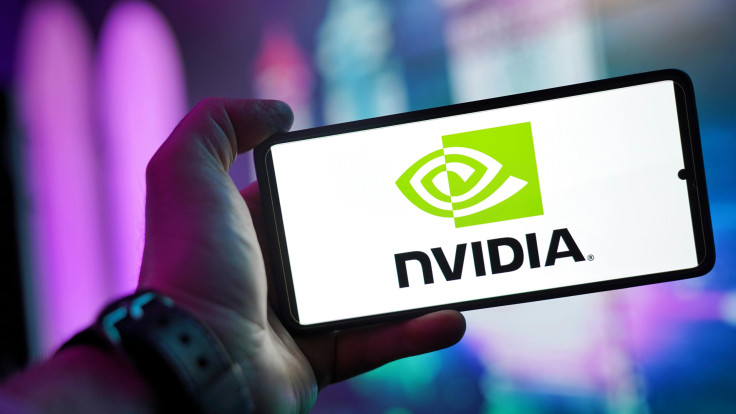Why Is Nvidia Stock Going Up? Analysts Say an 'AI Golden Wave' Is Just Beginning
Nvidia's shares surge followed company's announcement of trade agreements in Middle East

Nvidia's stock has been on a remarkable ascent, prompting many to wonder about the forces behind its impressive surge. The answer lies in the burgeoning field of artificial intelligence, with experts suggesting that we're merely witnessing the start of a significant AI-driven boom.
Nvidia's (NVDA) share price continued its upward trend on Thursday, gaining 0.5% in early trading, building on the previous day's record close above $154 (£112.11). These recent increases reflect widespread optimism on Wall Street regarding the artificial intelligence chip market.
$NVDA notches fresh record high in remarkable 2025 turnaround https://t.co/ROujlVGpI5 by @LauraBratton5 pic.twitter.com/ALSkkH12s4
— Yahoo Finance (@YahooFinance) June 25, 2025
On Wednesday, Ananda Baruah, an analyst at Loop Capital, significantly increased his price target for Nvidia shares to $250 (£182.00).
This is the highest projection among Wall Street analysts monitored by Yahoo Finance, suggesting the AI chipmaker's market value could reach an impressive $6 trillion (£4.37 trillion). Baruah anticipates the artificial intelligence chip market will expand to $2 trillion (£1.46 trillion) by 2028.
A New 'Golden Wave' for AI
Baruah stated that a new 'Golden Wave' of Generative AI adoption is underway, with Nvidia leading the charge for stronger-than-expected demand. He highlighted several factors contributing to this surge: growing demand for AI chips from governments, significant commitments from Big Tech hyperscalers, and the availability of Nvidia's cutting-edge Blackwell AI chips.
'While it may seem fantastic that NVDA fundamentals can continue to amplify from current levels, we remind folks that NVDA remains essentially a monopoly for critical tech and that it has pricing (and margin) power,' he wrote, per Bloomberg.
Analysts Project Substantial Growth in AI Chip Demand
Bank of America (BAC) analyst Vivek Arya, in his investor note on Wednesday, projected a more conservative yet still significant increase in demand for AI chips, reaching $650 billion (£473.20 billion) by 2030, up from $201 billion (£146.33 billion) in 2025. Arya noted that Nvidia is poised to be a 'key beneficiary' as it remains 'far ahead' of new companies entering the sector.
JUST IN:
— Evan (@StockMKTNewz) June 25, 2025
Nvidia $NVDA stock just hit new ALL TIME HIGHS pic.twitter.com/PsXEgkRDk7
Adding to the positive outlook for Nvidia, Micron (MU)—a supplier of memory chips for Nvidia's data centre GPUs—exceeded Wall Street's third-quarter earnings expectations on Wednesday. During a call with analysts, Micron executives attributed this strong performance to their robust AI business, driven by significant growth in AI data centres.
Lingering Investor Doubts and New Competitors
However, some investors have been sceptical about whether Big Tech can sustain its rapid pace of AI investment. This concern was particularly amplified in January when Chinese firm DeepSeek unveiled a new, cost-effective AI model that captured global attention. News of DeepSeek's latest AI model led to a sharp drop in Nvidia's share price at the end of that month.
Before Wednesday's peak, Nvidia's shares last reached a record close of $149.43 (£108.78) on 6 January. The stock then faced a challenging few months after that January high due to the emergence of DeepSeek and as President Trump initiated his trade war, which included a ban on the company's chip sales to China.
Middle East Deals and Earnings Fuel Surge
Since late May, Nvidia's shares have experienced a significant rise. This surge followed the company's announcement of trade agreements in the Middle East and the release of its first-quarter earnings report.
The report revealed revenue that surpassed Wall Street's expectations, indicating the company's continued strong performance despite the Trump administration's export ban on its chips to China.
© Copyright IBTimes 2025. All rights reserved.





















